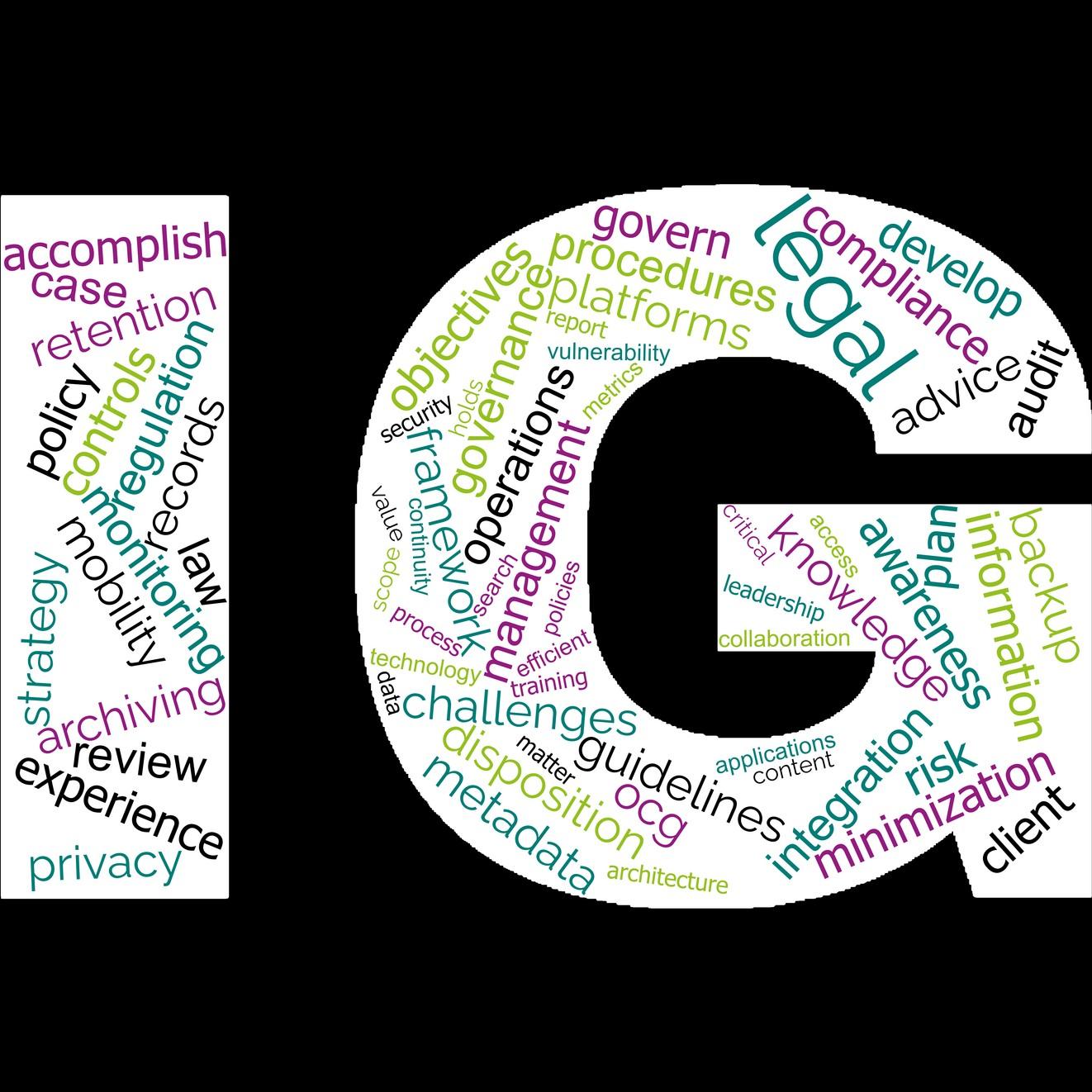www.legal-rm.com








Senior Director, Information Governance
Assistant Director of Records
Senior Manager of Information Governance Strategy and Operations Morgan, Lewis &

• Introduction to Information Governance
• What is the concept of “influence” in organizations?
• Diplomacy: How do you bridge the gap and resolve conflicting ideas amongst the stakeholders?
• How can you navigate through your organization’s politics?
• Ethical considerations and transparency
• Strategies for effective influence and diplomacy
• Key takeaways
• Q&A
www.legal-rm.com

What is Information Governance in a law firm?
• “Information governance in a law firm focuses on the management of client representation and business information by ensuring appropriate behavior in the valuation, creation, storage, use, protection, archiving and deletion of information. It is an organization-wide framework for managing information throughout its lifecycle and for supporting the firm’s strategy, operations, and ethical, legal, regulatory, risk and environmental requirements. IG establishes the authorities, processes, capabilities, structures, supporting mechanisms and infrastructure to enable information to be a useful asset in delivering client services while reducing liability to a firm.”
– Law Firm
Information Governance Symposium
https://edge.sitecorecloud.io/ironmountain-c8dd68e9/media/project/iron-mountain/iron-mountain/files/ resources/whitepapers/l/lfigs-2-0-update.pdf?sc_lang=en

Where are the roadblocks?
• The use of tools takes more time than the reward.
• IG requires “extra” work.
• IG is not (typically) a revenue-generating department within the firm
• Lack of familiarity with use of tools.
• Different perspectives of various groups across the firm; lack of understanding
• IG relies heavily on users embracing the idea that compliance is more important than convenience

What does it mean to
influence?
“The power to change or affect someone or something : the power to cause changes without directly forcing them to happen”
- Influence Definition & Meaning | Britannica Dictionary
Influence Definition & Meaning | Britannica Dictionary

Where can IG be influential in an organization?
• Shaping the policies (and ensuring they are consistent/current with the needs of the firm and its clients)
• Driving strategic initiatives (and/or ensuring IG considerations are integrated into the initiatives)
• Delivering on what was promised (Say what you do and do what you say.)
• Showcase the benefits and identify the risks while being flexible with within the firm’s risk tolerance structure.

Mastering the art of diplomacy
“The established method of influencing the decisions and behaviour of foreign governments and peoples through dialogue, negotiation, and other measures short of war or violence.” - Diplomacy | Definition, Meaning, Types, & Examples | Britannica
Diplomacy | Definition, Meaning, Types, & Examples | Britannica

How can the art of diplomacy leverage IG initiatives?
• Creating and fostering collaboration amongst departments
• Mediating between conflicting interests and priorities
• Communicating the client and firm leadership concerns and expectations
• Maintaining a positive organizational climate
• Understanding the risk tolerance v. the value of the project or objective
• Creating a culture of awareness – advocating for teams who need a seat at the table (including your own!)

Organizational Politics
“Many people feel that playing the political game involves devious plotting or blatant self-promotion. But in reality, “politics” is what naturally happens whenever people with different goals, interests, and personalities try to work together.”
― Marie G. McIntyre, Secrets to Winning at Office Politics: How to Achieve Your Goals and Increase Your Influence at Work

• Power Structures
• Formal
• Informal
• Leveraging structures
• Personal/team agendas and dynamics on decision-making
• Communication and Narrative
• Strategy and Tactics

Using your influence for good.
• Be transparent and accountable for your actions.
• Avoid practices that would otherwise be viewed as manipulation.
• Ensure that decisions made are in the best interest of the firm (and understand sometimes those decisions mean you don’t get what you want!)
• When in doubt, rely on policy, regulations, and ethical considerations for guidance.
• Respect diverse opinions, cultures, and foster dialogue that ensures openness and fairness.
• Be willing to lose a fight if it helps win the battle.

Strategies for Effective Influence and Diplomacy
• Building alliances
• Identify key stakeholders and decision makers.
• Establish common ground and shared objectives.
• Ensure transparency.
• Communication is key.
• Listen and ask questions.
• Consistent messaging is important, but so is adjusting the approach and the style towards the audience.
• Use negotiation tactics wisely.
• Highlight where there are mutual benefits.
• Focus on the easy wins.
• Explain how IG can help, and how IG is a help.
• Use meaningful data and examples

Key Takeaways
• Influence is a critical tool for driving effective information governance.
• Diplomacy enables constructive dialog and conflict resolution.
• Navigating organizational politics requires strategic planning, ethical considerations, and continuous communication.
• Successful governance initiatives balance technical rigor with soft skills.
• Know your audience; understand their pain points and how they can be resolved.
• Be willing to negotiate; understand that the outcome may not meet all of your needs but if the critical ones are, it’s a success!




